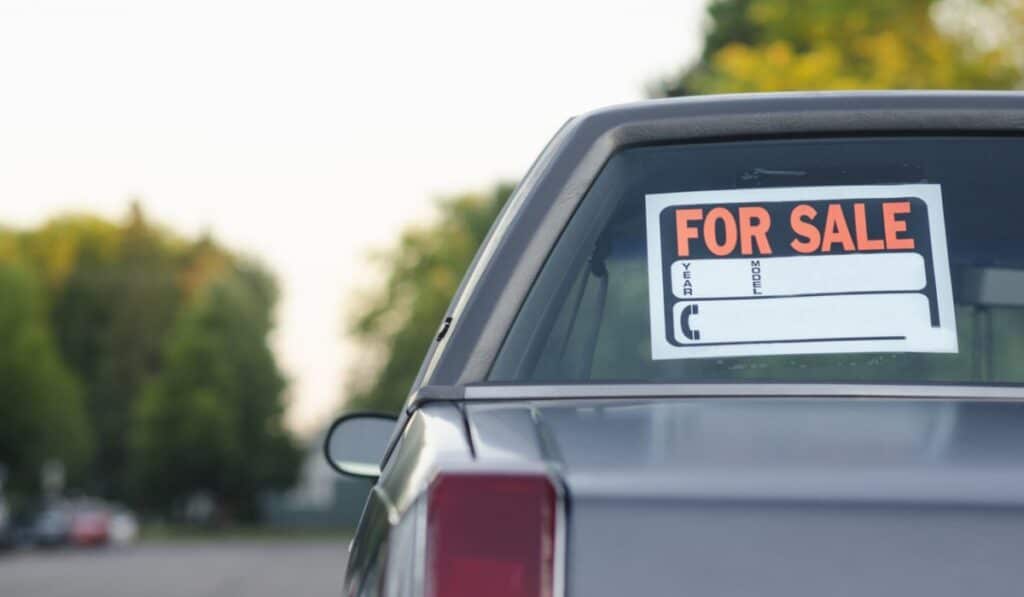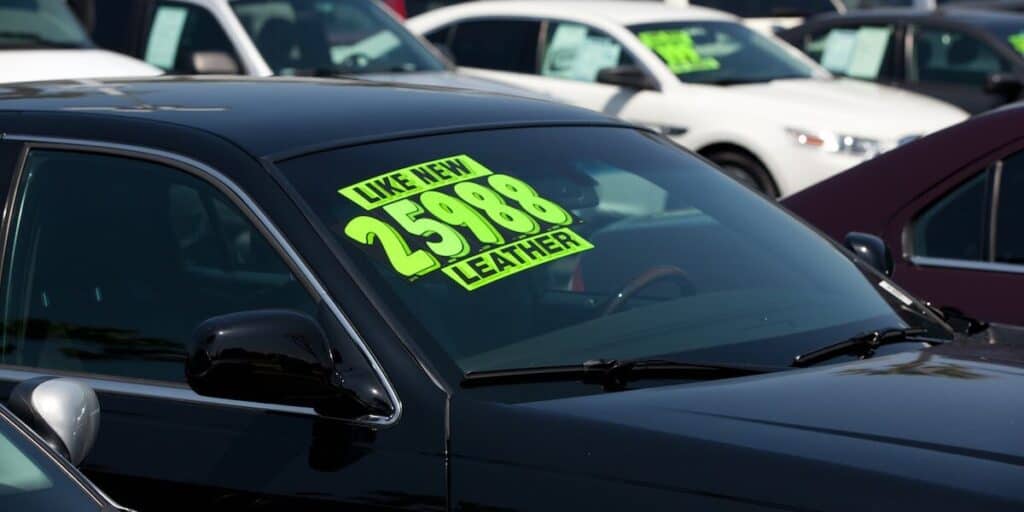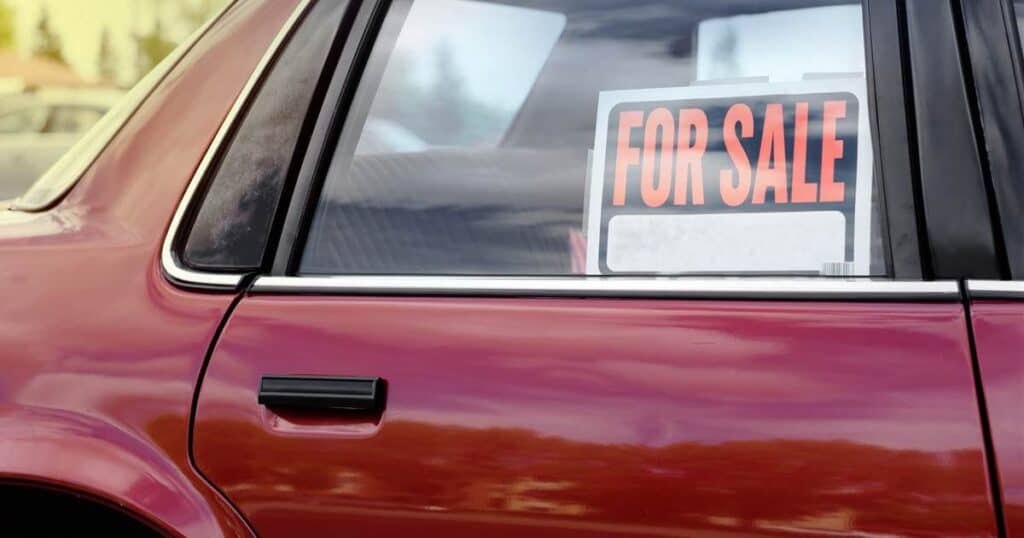The allures of lower purchasing cost and certified pre-owned vehicles make used cars the ideal route for many car shoppers. However, before taking your car from showroom to road, it’s important to stay clear of legal troubles. This starts with knowing what your rights are when signing a car deal. For Ontario residents, here are few things to keep in mind.

Car contracts are binding
So it’s important that you understand everything that goes into the contract and bill of sale. If you need any clarifications or want amendments, don’t hesitate to ask. Motor vehicle contracts are always enforced under Ontario law, so you need to avoid any legal pitfalls when buying a used car.
Contract cancellation timeline
Ensure to have a timeline within which you can cancel the contract if you find any information discrepancy about the car. This should ideally be up to 90 days. Some information to verify include the car travel distance or odometer reading, car model, make and year, Ministry of Transportation categorisation of car, i.e. as salvage, irreparable, or rebuilt, and information on use history
Comprehensive All-in Pricing
Confirm that you won’t be incurring additional costs or fees on your car apart from taxes. Ontario-registered car dealers often provide an all-inclusive cost, not so ads from manufacturers. The ad should also inform details of past use, e.g. as a police vehicle, daily rental, taxi or emergency services.
Resolving manufacturing defects
Many car manufacturers sign up for The Canadian Motor Vehicle Arbitration Plan (CAMVAP), and you ideally want to have your dealer verify that your car qualifies for the free arbitration program. This way, you are able to better resolve concerns about manufacturer-related defects if you detect any problems following purchase.
Leasing a vehicle
The Consumer Protection Act offers protection for three types of leases:
1. Automatically renewed or indefinite leases
2. Leases lasting not less than 4 months, and
3. A residual obligation lease, where an amount, based on the difference between the wholesale value and resale value at the end of the lease period, is paid to the lessor. The Consumer Protection Act has rules guiding the calculation of the maximum amount payable on this lease type.
Written lease agreement
Having a written statement on your lease agreement is important. Before making any payments, ensure that you are provided with a written lease document stating the lease duration, payment structure, description of leased car, total lease cost, etc. It is also important to work out agreements on what constitutes reasonable wear and tear, who pays the associated cost, terms of returning the lease, and other details that go into leasing a car.
Staying safe from seisure
The Consumer Protection Act, 2002, offers an important cover for consumers who have paid atleast two-thirds of the total cost contained in a car-financing agreement. Once you meet this threshold, the car can longer be seized from you or resold to anyone else except under order by the Ontario Superior Court of Justice.
Claiming compensation
Deposits of up to $45,000 are protected by the Motor Vehicle Dealers Compensation Fund. What this means is that you can file a claim for compensation if the warranty or purchase conditions are not fulfilled by the registered dealer.
Safety recalls
Transport Canada’s database is where to look to verify if your car model was recalled for safety in the past.

Tips when buying/leasing
Whether you’re transacting with a private seller or a used vehicle dealer, ensure to tick the following checklist when buying or leasing a car:
• The dealer is OMVIC registered
• Confirm the ownership history
• Look out for signs of flood damage
• The private seller provides a complete Used Vehicle Information Package (UVIP)
• Have a mechanic inspect the car before handing over cash
• Confirm any aliens on the vehicle identification number (VIN)
• Don’t Fall Victim To Curbsiders
Contrary to popular thought, you need to register as a dealer even if you sell less than 5 cars for income annually. Some repair shops also sell cars, and other curbers simply put the “for sale” tag on cars parked in public. In any case, curbsiders are unregistered and have no licence to engage in car deals. It’s not uncommon for them to tamper with the odometer and conceal damage or vehicle history. So engaging in transactions with them could be both financially and legally risky. If a potential seller fails to provide the car’s information package, refuses vehicle inspection by a mechanic and doesn’t have their name on the registration permit, chances are you’re dealing with a curber.
• Buy From A Registered Dealer
Salesmen and vehicle dealers in Ontario must be Ontario Motor Vehicle Industry Council (OMVIC) registered. Only when you buy from a registered dealer will you be able to secure the Motor Vehicle Dealers Compensation Fund and similar benefits included in the Motor Vehicle Dealers Act. To check if a potential salesperson or dealer is registered, head over to search on OMVIC’s website.
• Ensure There Are No Liens
Liens are legal claims that can be enforced on property if debt is not paid back. Since liens are attached to a property, not the owner, you risk losing your car to the claimant if the car had a lien prior purchase. A quick search at CARFAX Canada will let you know if there are any liens attached to a car’s serial number. This is a charged service though.
• Solving After-Purchase Problems
1. If you bought a used car from a registered dealer or salesperson, contacting the seller is what to do first if problems arise. Ask to discuss with the head – manager, owner, etc. and let them know your concerns and desired outcome.
2. British Columbia residents may also forward compliants to the Vehicles Sales Authority or contact them via email [email protected]. However, this option is only handy if you bought your car from a verified dealer, in which case you may be reimbursed from the Motor Dealer Customer Compensation Fund if a dealer fails its legal obligations. On the website you’ll find more information on who is eligible for compensation, losses covered by the fund and how to get started filing a claim.
3. The Better Business Bureau, there to attend to customer problems with local businesses, may also help. Another place to look is the Automative Retailers Association; the only caveat being that not all dealers are members of the voluntary organisation. The Recreational Vehicle Dealers Association can also help you resolve complaints if you own a recreation vehicle. If you went the Franchise dealer route, report to the New Car Dealers Association of BC.
4. Ontario Motor Vehicle Industry Council: If you bought your car from a verified dealer, resolving after-purchase complaints shouldn’t be difficult. However, if you’re unable to reach an agreement, you may consider contacting the Ontario Motor Vehicle Industry Council (OMVIC). While OMVIC are unable to revoke car deals, they mediate between dealers and buyers to settle disputes. If this still doesn’t work, then taking the dealer to court may well be your last option.
5. Legal action: It’s always better to settle things out of court. Still, taking legal action may be a resort if you’re unable to reach a solution with your dealer following the previous steps. You ideally want to exhaust all options and seek legal advice before going this route.
Vehicle Disclosure
Among other protective measures, MVDA requirements mandate all dealers and salespersons to provide some key information to potential car buyers. The goal is to ensure that buyers are fully aware of relevant information about a car before making a purchase. And so dealers and salespersons alike will disclose the following information:
• Basic vehicle details: car model, make, year, trim, odometer reading, whether new or used etc.
• History of repair: stating the frequency and associated repair costs of past damage.
• Use history: as police car, limousine, taxi, emergency or rental vehicle
• Car parts: in case original parts are missing or have been replaced.
Other compulsory disclosures contained in OMVIC requirements can be found here. Note though that dealers are only required to disclose information they have. And so they won’t be sanctioned for not revealing information you were not told but discovered following purchase.

Cancelling contracts
An important legal provision by the MVDA is the ability of buyers to cancel a deal following purchase if car details including one or more of the following were not provided by the dealer: use history (as an emergency car, taxi, police car, daily rental etc.), general car information (model, make, year etc.), classification (i.e rebuilt, salvage or irreparable), and odometer reading. Consumers can file a request for refund within 90 days of purchase.
All-in-Pricing
The MVDA also stipulates that dealers provide an all inclusive pricing when advertising cars. This allows consumers to know what is covered in their payment. An all-in-pricing ideally includes freight fees: the car’s factory – dealership shipping cost, pre-delivery Inspection Fees and Government levies. Dealers are also required to include OMVIC membership fees and Safety Fees (not including cars classed unfit or “as-is”). By mandating accurate pricing, this law ensures there’s transparency in all transactions and prevents undue advantage to sellers. However, this is only the case when you buy from OMVIC registered dealerships and salespersons. If you patronize unregistered sellers or dealerships, you’ll need to exercise due diligence when negotiating price.
Original article from: https://dialalaw.peopleslawschool.ca/buying-a-used-car/
